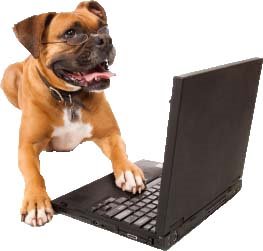Re-housebreaking Your Mature Dog (4)
The personality and thought process of the dog is an extremely complex mechanism. Training, whether for toilet training or teaching to sit on command, is simply a matter of communication.
That is, communicating your desires to your pet and requiring that he respond in a certain manner, all the time. But when a normally trained canine suddenly behaves in a manner differently than from the way he has been trained to behave, the owner must search for the cause before trying to find a cure.
Is it possible for an occasional accident to become a learned behavior in your mature dog? If an occasional accident goes unnoticed by a dog owner for any length of time, the possibility exists that the dog’s actions will become a habit. Consistency in performing a particular act results in that act becoming a learned behavior. Therefore, it is possible for a perfectly housebroken dog to become “trained” to use the bathroom indoors due entirely to lack of proper supervision.
When this situation happens, there is no alternative except positive retraining methods. Removing the motivator is fine in the early stages, before the bad act become a learned behavior, but when the act has been allowed to become a routine, then it is the owner’s responsibility to retrain the dog.
Retraining is relatively simple and requires a minimum amount of patience, but a maximum amount of supervision. The training, on the surface, is similar to house training a puppy. The primary difference, and a fact which is in the dog owner’s favor, is that the new puppy doesn’t know he has done wrong when he makes a mistake in the house. A new puppy is not quite sure at first why he’s scolded in the house and praised in the yard. The mature dog is quite tuned in to two of the five basic principles of training – correction and praise.
The keys to successfully re-housetraining the older dog are supervision and the judicious application of praise and correction. It would be unwise for the dog owner to follow the dog from room to room and, in fact, this tactic just might prevent the dog from making the mistake; thus, it would prevent corrective measures from being established. The dog’s actions must be completely supervised, but he should not feel that he is being watched.
A typical situation might find the family sitting in the kitchen eating dinner, with the family pet sleeping near the living room. Suddenly, the dog gets up, stretches, yawns, and slowly makes his way down the hallway to another room. The dog owner should then follow, unobtrusively, to keep an eye on the actions of the dog.
Wednesday, February 18, 2009
Re-housebreaking Your Mature Dog (4)
Subscribe to:
Post Comments (Atom)


No comments:
Post a Comment